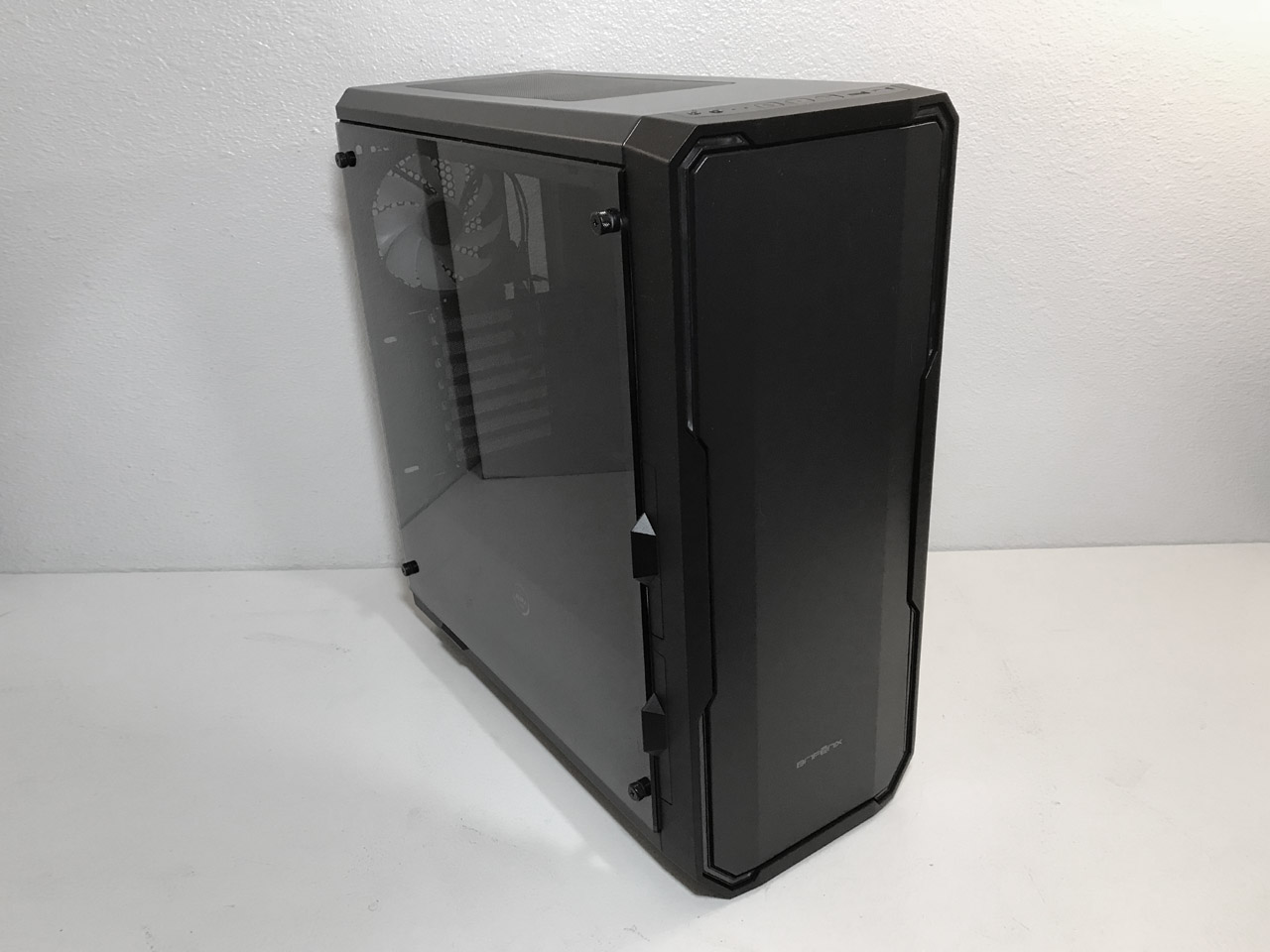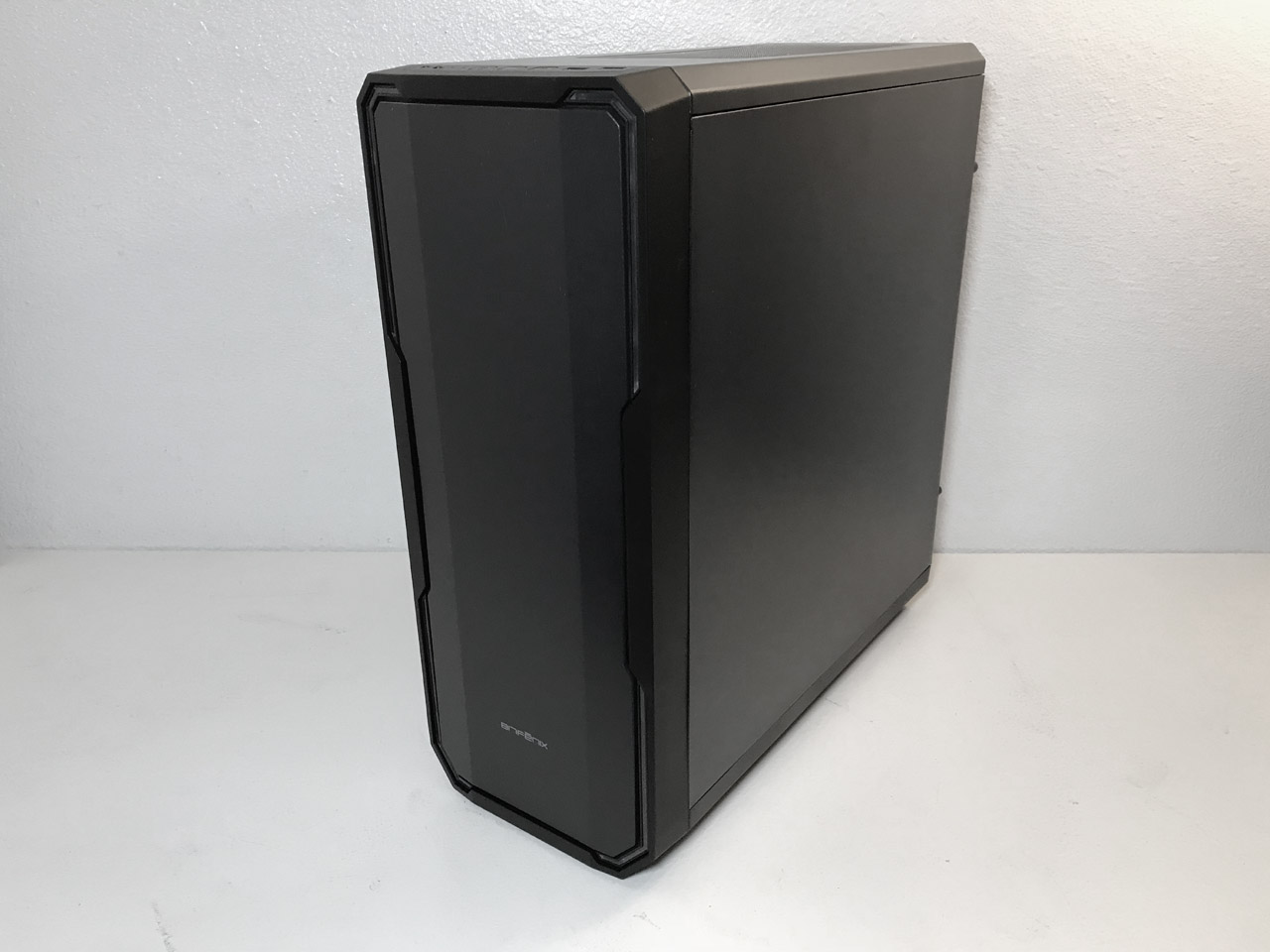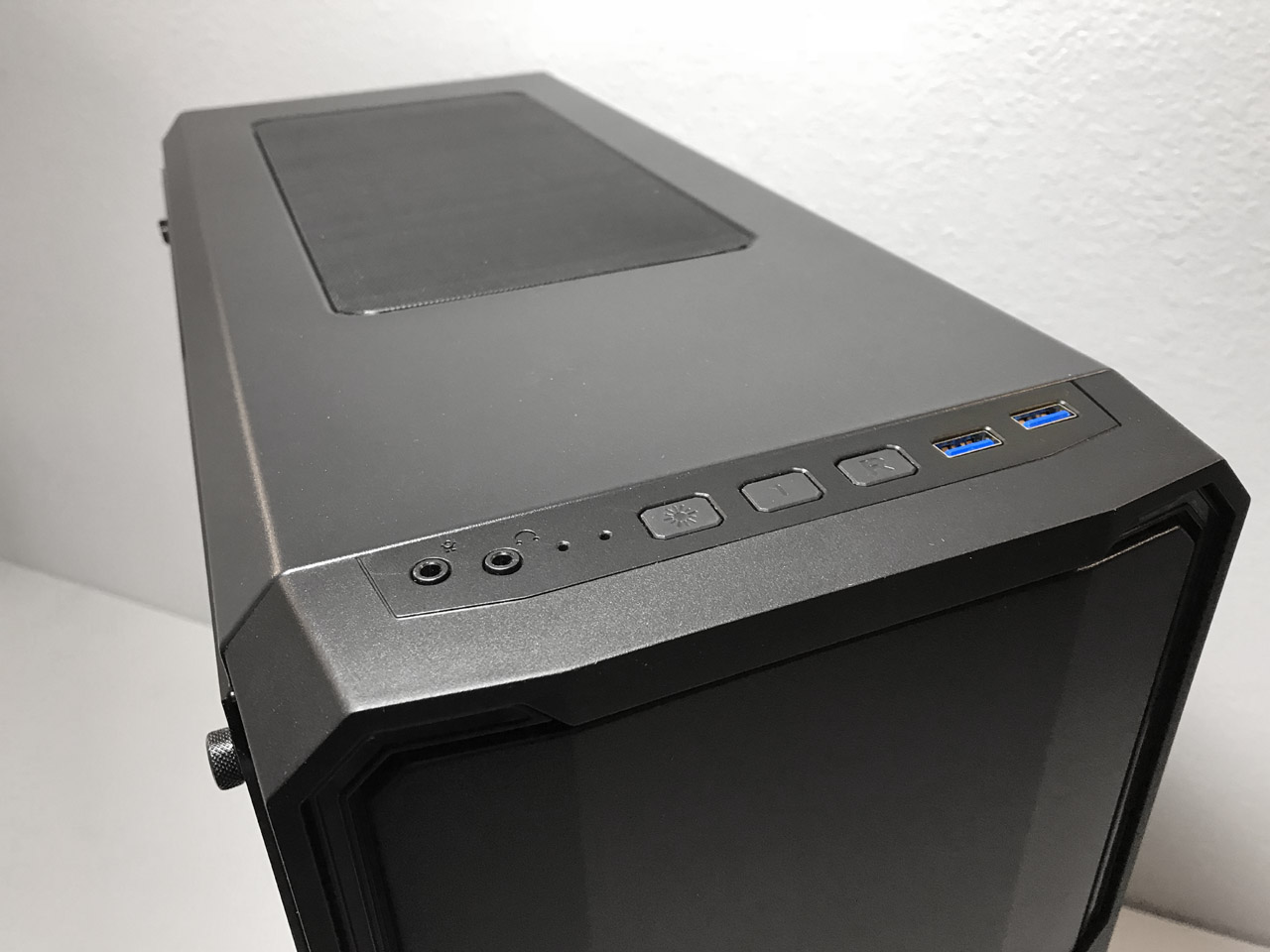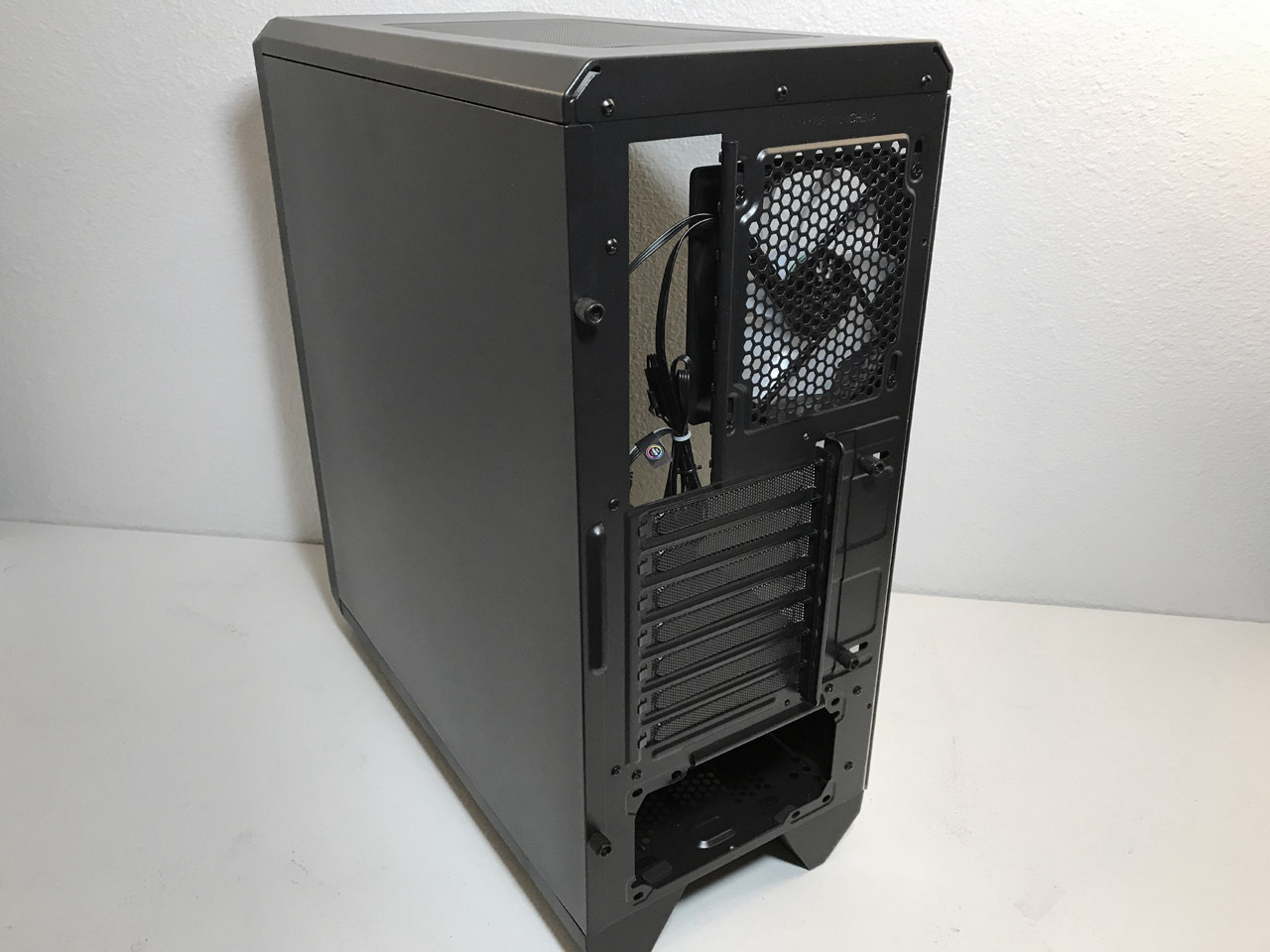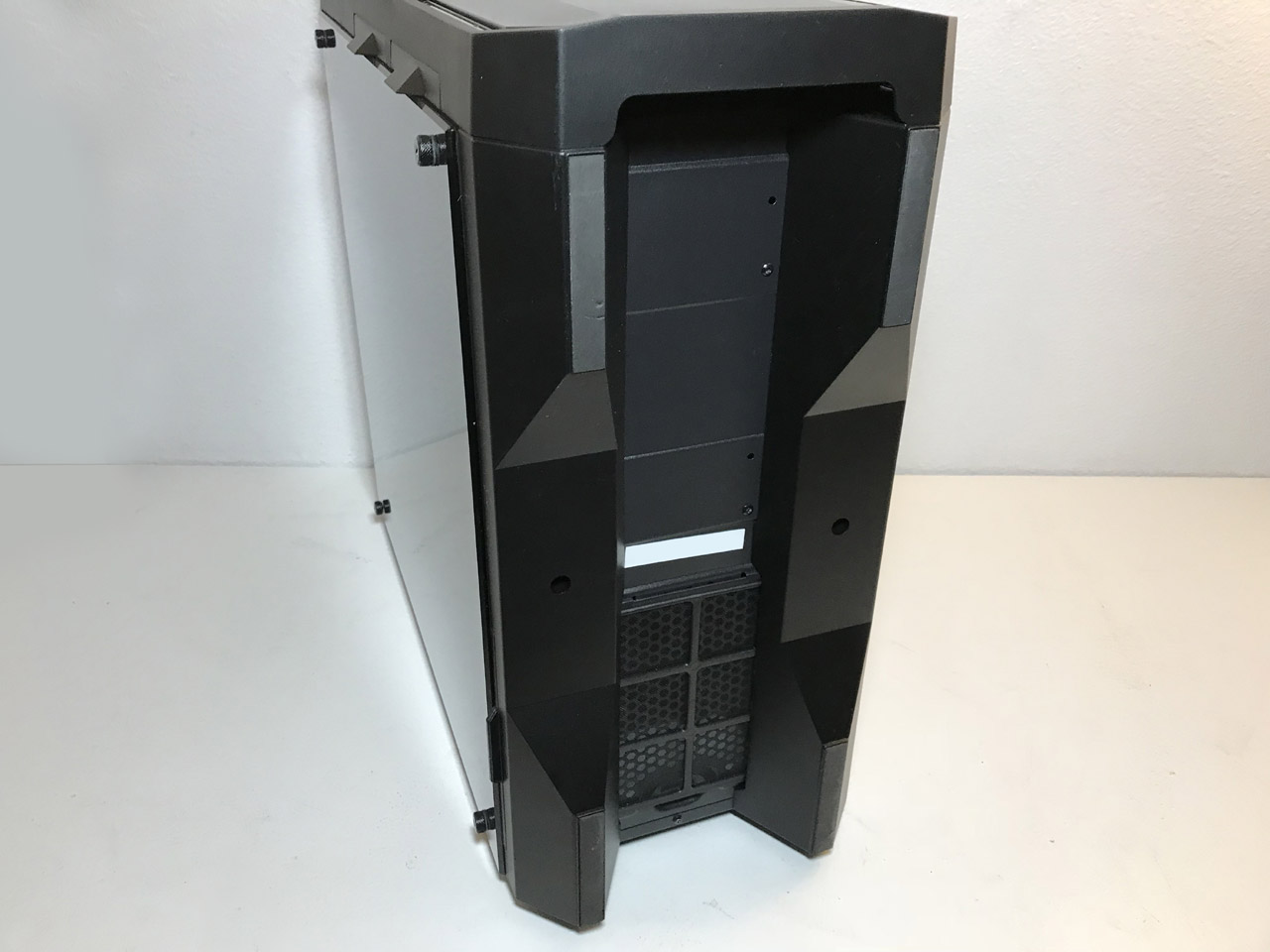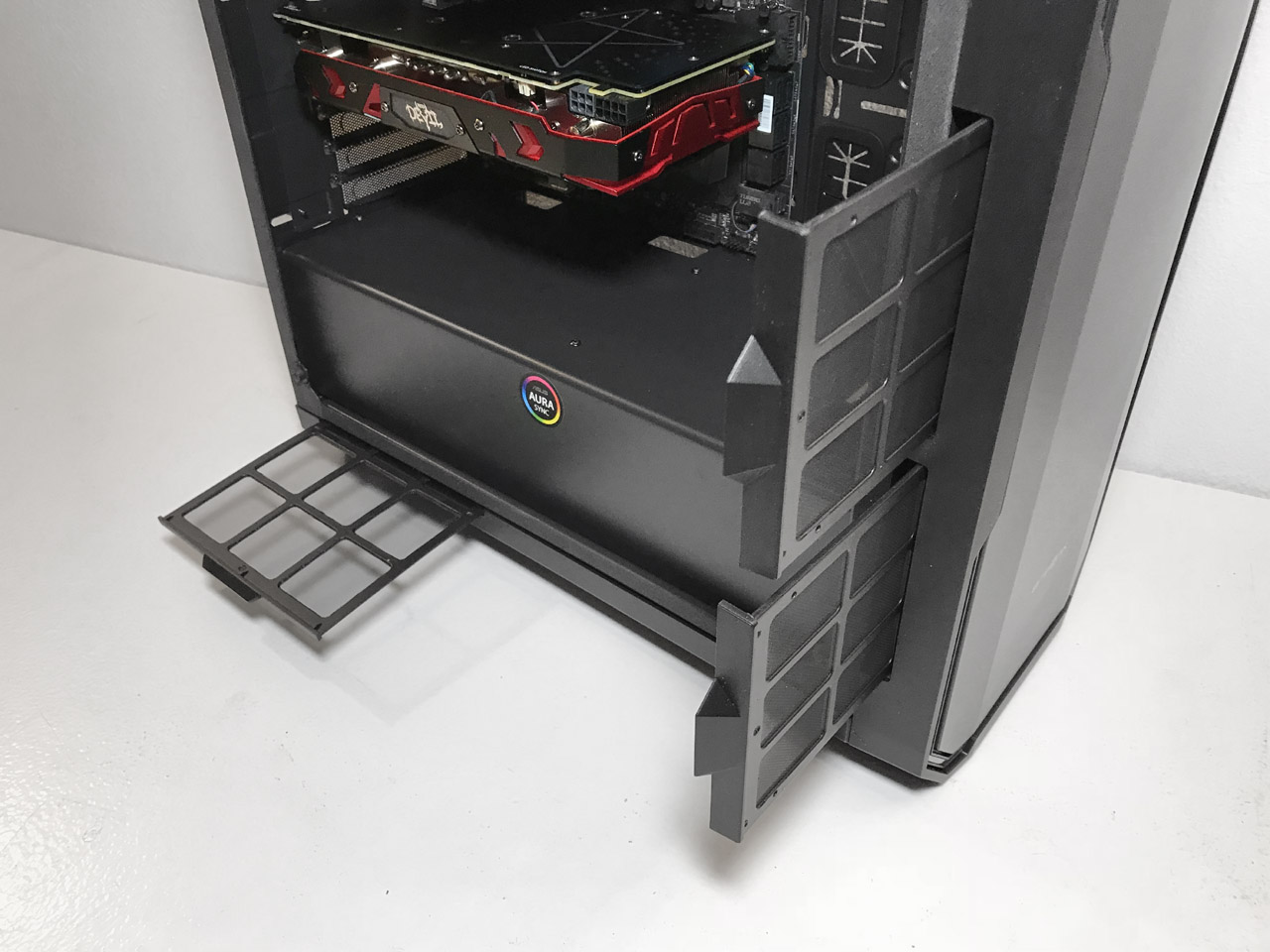Early Verdict
When it comes down to it, Bitfenix Enso performed well, has features galore, including the extremely convenient fan filtration system. Those building a system in this chassis will be well served by the addition of a fan or two, or an upgrade to larger 140mm fans. Overall we have no problems recommending this chassis at this price point. Budget conscious shoppers would be best served by waiting for a sale or price drop to save a few bucks.
Pros
- +
Tempered-glass side panel
- +
Filtration system
- +
Low noise
- +
RGB Lighting
Cons
- -
Only two 120mm fans
- -
Mediocre thermal performance
- -
Price, for some
Why you can trust Tom's Hardware
Features & Specifications
Originally spotted at Computex 2017, this mid-tower ATX chassis sports a tempered-glass side panel, RGB lighting functionality, and a price tag that won’t break the bank. The Bitfenix Enso is constructed of steel and plastic, measures 210 x 489 x 454mm (W x H x D), and is painted in black inside and out. Tipping the scales at just 15lbs, this chassis is fairly light considering its 4mm thick glass.
Specifications
Exterior
At first glance, the Bitfenix Enso looks like your average ATX mid-tower. It is only upon closer inspection that this chassis begins to set itself apart from the crowd.
The rear portion of the top of the case is covered by a removable magnetic metal mesh dust filter. Directly under the filter is a mesh area that has mounting locations for two 120mm fans. The leading edge of the top panel is home to two USB 3.0 ports, headphone and microphone jacks, HDD LED, power and reset buttons, and LED controller buttons.
The front of the chassis consists of a large plastic panel with LED lighting strips in all four corners. There are no openings for 5.25" drives or drive bay accessories. The front of the case lacks vents of any sort. All incoming air is drawn into the chassis via a cutout in the bottom inner edge of the fascia. The front panel is tool-less and is attached to the chassis with plastic push pins. Removing the panel for maintenance or component installation is a simple matter of pulling the lower edge out and away from the case.
The full-cover, tempered-glass side panel is slightly tinted, measures 400 x 420mm, and is held in place by rubber-coated locating pins and thumbscrews. The steel panel on the opposite side of the chassis is secured with standard thumbscrews.
The bottom of the case has a large filtered hole for power supply ventilation and two large plastic feet that span the entire length of the chassis. The feet are almost 2" tall and are equipped with rubber strips to keep the chassis from sliding. The rear is home to nine expansion card slots (7 horizontal, two vertical), motherboard I/O area, and an opening for a bottom-mounted PSU.
The fan filtration system on the Bitfenix Enso is one of the best we have ever seen on a chassis in this price range. Although these are traditional removable nylon fan filters, it's not what they are made of that makes them so great. It is the way they are integrated into the chassis. The filters in the front and bottom of the case slide out from the side, which means that you no longer have to move your entire system just to clean your filters.
Get Tom's Hardware's best news and in-depth reviews, straight to your inbox.
MORE: Best Cases
MORE: All Case Content
Steven Lynch is a contributor for Tom’s Hardware, primarily covering case reviews and news.
-
Lucky_SLS Asus aura sync ready, vertical gpu mounting, tinted tempered glass, adequate thermals with a bottom fan but alas no USB 3.1Reply
Almost all the smartphones now are USB type C. Make it mainstream!
I think this would be a pretty good case with an aio and a couple of fans. -
riz_76 I can understand with the appeal for RGB support and that stylish design. But they had to cut costs with flimsy HDD trays and a single SSD mount. And the really inefficient intake....Reply
That shouldn't be the compromise. A few stylized vents or slits with mesh on the front panel would have rendered the front filters unnecessary and improved the temps drastically. -
PokeyDoggo Tbh for 90 bucks it's pretty mediocre, bitfix has made better cases then this at the same price range. It looks pretty, but that's about it.Reply
Why isn't there a 3rd dust filter for the top fan?
The HHD trays look flimsy and coolermaster has a faster toolless mechanism fot their 50$ case.
The HDD cage and the PSU shroud are riveted into place as well.
You noted that the PSU was a tight for for 200mm, and most PSU's are rather large (evga's supernova, corsair RM 650 X) How much of a tight fit was installing the PSU?
Such as closed off front panel makes it uncanny, but I do like the design and noise reduction. I have a Fractal Design R5 (was 100 euros when I bought it) myself with two 140mm fans, and opening the door does drop CPU and GPU temperatures by 5-8 degrees but increases noise. How does this fair for the bitfix enso? -
Co BIY "Overall we have no problems recommending this chassis at this price point."Reply
Seems like it should have at least gotten the "TH Approved" badge. -
Olle P Reply
Gamer's Nexus answered my question: YES!20384070 said:Where's the air intake to feed the front fans? Is it just a narrow slot in the bottom?
This case has abyssmal airflow and requires a fan to draw air in at the top to provide some sort of useful CPU cooling.
Cooling the video card is a PITA...
